
The Darrell McClain show
Independent media that won't reinforce tribalism. We have one Planet; nobody's leaving, so let’s reason together!! Darrell McClain is a Military veteran with an abnormal interest in politics, economics, religion, philosophy, science, and literature. He's the author of Faith and the Ballot: A Christian's Guide to Voting, Unity, and Witness in Divided Times. Darrell is a certified Counselor. He focuses primarily on relationships, grief, addiction, and PTSD. He was born and raised in Jacksonville, FL, and went to Edward H white High School, where he wrestled under Coach Jermy Smith and The Late Brian Gilbert. He was a team wrestling captain, District champion, and an NHSCA All-American in freestyle Wrestling. He received a wrestling scholarship from Waldorf University in Forest City, Iowa. After a short period, he decided he no longer wanted to cut weight, effectively ending his college wrestling journey. Darrell McClain is an Ordained Pastor under the Universal Life Church and remains in good standing, as well as a Minister with American Marriage Ministries. He's a Believer in The Doctrines of Grace, Also Known as Calvinism. He joined the United States Navy in 2008 and was A Master at Arms (military police officer). He was awarded several medals while on active duty, including an Expeditionary Combat Medal, a Global War on Terror Medal, a National Defense Medal, a Korean Defense Medal, and multiple Navy Achievement Medals. While in the Navy, he also served as the assistant wrestling coach at Robert E. Lee High School. He's a Black Belt in Brazilian Jiu-Jitsu under 6th-degree black belt Gustavo Machado. Darrell Trains At Gustavo Machado Norfolk under the 4th-degree black belt and Former Marine Professor Mark Sausser. He studied psychology at American Military University and criminal justice at ECPI University.
The Darrell McClain show
We have to talk about Bill maher
Facing the tempest of media bias and the elusive quest for true free speech, I, Darrell McClain, step up to the mic with a critique that cuts through the noise. Public figures like Bill Maher often stand in the spotlight, wielding influence with a possible disconnect between their words and actions. Ever wondered why certain debates, especially around hot-button issues like anti-Semitism and racism, quickly shut down dialogue? This episode peels back the layers of these complex conversations, examining the evolution of protests from the 60s to the realm of TikTok and the role that traditional news sources, such as CNN, play in shaping our perceptions.
The echo chambers that form on platforms akin to Maher's are put under the microscope, as we entertain the idea of enlivening discussions by inviting diverse voices to the table. Special guests Scott Galloway and viewpoints from Don Lemon contribute to an examination of today's debates, including the contentious Israel-Palestine conflict. We scrutinize the need for intellectually honest discourse and ponder the effects a singular narrative holds over generations and mainstream discussions. This is about disrupting the status quo of public discourse and welcoming the challenging, the diverse, and the thought-provoking.
In a world brimming with global tensions, the United States' foreign policy maneuvers are dissected with a critical eye, delving into the complex interplay of religion and politics. The skepticism many hold towards government narratives, from the 9/11 attacks to the moon landing, is addressed head-on. We also draw from personal experiences in the justice system and societal integration, tapping into the wisdom of icons like Rabbi Abraham Joshua Heschel and Malcolm X. As we navigate these discussions, the aim is not only to challenge perceptions but to encourage a dialogue that is as reflective as it is robust, questioning the very fabric of truth in our society.
Welcome to the Darrell McClain Show. I'm your host, darrell McClain. Today is 5-14 of 2024. You are listening to episode 406.
Speaker 1:Thing that I do, where I tell you the both sides of the argument type of thing, which, and I do, what I would like to say is just a commentary on what another commentator has said, which is, and talk about how I guess, off base it is and there's a lot of research that happens when it goes, when I do this show, and so I watch a lot of different things and do a lot of different studying and listen to a lot of different podcasts and listen to a bunch of different audio books, is so that I can have a perspective of not thinking about what someone thinks but actually going to the source and hearing them say it for themselves Every now and then. One of the people that I, one of the people that I would go to because they are a public figure, is a person by the name of Bill Maher, and so for the last few episodes that I have been looking at, there's something, there's a trend that he has gone down that I think needs to be fully addressed and it is very rare that I call people out by name, but I think, in this sense, I can do nothing other. So that's what's going to happen today. I'm going to be critiquing the arguments that were made on the last two episodes by some very popular figures, and I'm going to point out some very glaring contradictions that they have sometimes in the very same segment and that they have grown into the habit of not even practicing what they preach.
Speaker 1:This is a one-topic show, although we're going to hit several different themes in the one topic. So buckle up and so buckle up. So this first clip that I'm going to let us wrestle with is Bill having a conversation with Scott Galloway, a college professor who has some provocative and interesting thoughts a lot of times, and the former CNN host, don Lemon, is this like the 60s, when they were demonstrating against the war in Vietnam.
Speaker 3:What's alike and what's different. Compare and contrast. I wasn't there in the 60s.
Speaker 4:I wasn't either, but I could read. But, yes, I agree, I went near NYU and I got to watch a lot of it play out and I went to talk to the students. It's the same in that it's a protest, but it's different in that it is. This is about horrible, horrible anti-Semitism and racism. A lot of it some of it is, I should say. But when you talk to the kids, for the most part for the most part not all of them these are kids that are out there and they're peaceful. A lot of them don't have the information needed because they're getting their news from TikTok and from yeah, and they don't have the history of what's going on.
Speaker 1:But you know, I think now remember the conversation we had on the previous episode, where that was the the gig, that that that was given away is that they were trying to ban TikTok because the college students were getting information from TikTok, and that's, that's the narrative, and the whole thing is TikTok, if you really look at it at its core. What was happening was people on the ground in some of these conflicts were getting videos of what was happening, and that's the information. And I take it to let us wrestle with the fact that this is a ex-journalist who doesn't understand the fact that what was that? What they were doing is what you would have called freelance journalism are in the people on the ground and you you have to make your own analysis. But it's also that the first report is normally incorrect, etc. Etc. Etc. And I think it's kind of ironic to say that people can be disinformed and they don't know the history because they're getting their news from TikTok, when we know for a fact that CNN is no bastion of truth itself.
Speaker 4:I think that Scott and I agree we talked about this. I think kids on college campuses should be given a wide berth to sort of express themselves and to do dumb things, but when it crosses over into violence and anti-Semitism, that's not right.
Speaker 1:So look, bill Maher's audience is full of a bunch of sycophants. They have a clap-anything type of audience and I'm only going to say this small thing Anti-Semitism. The term, like I said it before, it's just like when somebody says the term racism, it has been tossed around so much that it has no real value. It is almost just a term that is tossed around to shut down the conversation. A student will say something, or a protester will say something, or another class professor will say something, and they'll be charged with being anti-Semitic.
Speaker 1:Now, there is obviously something rampant and evil about being anti-Semitic or racist or whatever. My thing is. The distraction is that they have called if you saw the panel on Fox News with the conservative Jewish people, go listen to that panel and tell me if you don't think that some of the stuff that those people were saying could not be called anti-Semitic to the Jews that are on the left side of the argument. They even called the other Jews tokenists. You know very racially charged terms. So now we're going to go to Scott Galloway and his response.
Speaker 2:But the double standard here is pretty striking. Dylann Roof goes into a Charleston church and kills nine members of a black church. If I went down to the plaza of any of these universities with a white hood, a confederate flag, and signed and started saying Dylann globalize, dylann, kill black people, there'd be no need for context, we wouldn't be talking about free speech, I'd be out of academia. And if I whipped up students into a frenzy such that we started harassing non-white students on their way to the library and I started getting in their face or even throwing things at them and that has happened we wouldn't be having a conversation about the First Amendment, we'd call in the fucking National Guard.
Speaker 1:Now that comparison, first off, was silly and wild. And one, dylann Roof, actually went to a church, a historically black church, and murdered people who weren't protesting anything, who weren't active outside, who weren't trying blocking his path to egress. He'd written a manifesto saying because these people and this church was a historically black church and because the AME church is very powerful because it both teaches people to be politically aware and also religiously oriented, he wrote in his manifesto that black people are more politically and racially conscious early on because of things like the AMB church, and that white people don't understand racial consciousness until in their later years and so they needed to be killed. How can you? It would the? The fact that he, within one foul swoop, could, could equate Dylan Roof, a murderer who murdered people who weren't protesting anything. They were actually sitting on their knees praying to some kids who were protesting, other college kids is is. It's an amazing, uh, warped comparison. Yeah, and and and. So that that was one. But, like I said, the clap everything audience and took that point because he's saying what they want to hear. But if you would dig down into it you can see the comparative analysis is actually pretty stupid. It has no real weight in value.
Speaker 1:The second principle is these are the same people who a few months ago, especially during the Trump years, were rampantly yelling about free speech, absolutism and how that principle was concrete and unmoved. And free speech is free speech, whether you like it or not, and and all the principles of yes, and it's not really free speech until it's something you detest. Famously, the aclu used to annoy everybody because when the nazis marched, the aclu defended their right to do so, even though that they obviously were on the left and they weren't a Nazi organization. Because the principle of American liberty is thus my freedom does not end where your comfortability begins or where your uncomfortability begins. And it's like it is so funny to me how fast that these principles disappear when an alleged conflict arises. So I'm going to go on to let Mr Scott Galloway finish his thought.
Speaker 2:What is clear to me is that free speech is at its freest when it's hate speech against Jews.
Speaker 3:Well, I mean, I can quote some professors, and these are professors. Where did the kids get it from? At Columbia, joseph Massad praised the awesome scenes on October 7th and he says this is another Columbia professor, hamid Dabashi every dirty, treacherous, ugly and perverse act happening in the world could be traced to the ugly name of Israel. That is just a level of rhetoric that I don't. You're right. I just have never heard anywhere else and I you know. They say it's great to live in interesting times, a little too interesting these times that I would live to see this day where Jewish students at Columbia it's still in Morningside Heights, right, columbia are told to stay home.
Speaker 4:Yeah, but some of the kids out there, a lot of them are Jewish kids.
Speaker 3:Yeah, a lot of them are Jewish kids. That's really sad.
Speaker 1:There's an age gap. See, now, here's the problem with that. That did not at all make them take a pause. Then, oh, it's anti-Semitism and all the rhetoric and da-da-da-da. And he says actually, a lot of the people out there are Jewish kids. And Bill says that's sad. What did Bill just give the game away about? It's actually not that they're against anti-Semitism at all. They actually think that Jewish people do not get to have varying thoughts and opinions on this topic. And you can see the cowardice of the way they are.
Speaker 1:Because Bill Maher has a professor on, a journalist on, and he has prepared quotes ready from other professors, so he knows allegedly who these people are.
Speaker 1:Why not invite them on with the professor and that they have a disagreement, instead of having three people on who all agree with each other so they can pat each other on the back about the problem with whatever?
Speaker 1:This is actually part of the problem with his, his, his analysis. He surrounds himself with people who are in the, as we say, the amen chorus, so he says something outlandish, but they agree with him and they slow clap, and then the other person agrees and they slow clap, and and all the, the, the other, uh sides of the, the the aisle and the. They don't get representative and he always will go to the most outlandish argument that has been made and he has no ability because he is a intellectual coward, I would say to invite people on that he knows is going to spank him. On the topic, which I have some old school clips that I will show you of why he stopped doing these sorts of things, but I'm going to let this one finish and we are going to get into this, and then I'm going to show you some of the clips of why Mar does what he does.
Speaker 4:I mean when I talk to them. Young people believe a certain way, a certain thing about what's happening in the war in Gaza and towards Israel. I don't know what the disconnect is. It would be interesting for older people, especially older Jews and younger Jews, to sit down and figure it out. But it's very interesting to me, this age gap.
Speaker 3:Well, Harvard is teaching a course I read.
Speaker 1:That was just I don't want to say the word stupid, because I tried to be flippant, because I tried not to be flippant. One of the oldest Jewish people to talk about this issue is I mean, for his entire life's work has been talking about these types of issues. He was literally, at one point in time, the most quoted intellectual since Socrates Still alive. His name is Professor Noam Chomsky, so to say, with a straight face, that well, let's just send this to younger Jews. No, that is not a part of the narrative. That is not a true part of the narrative. This has always been a debate within the different schools of Jewish thought. Noam Chomsky was born on December 7th of 1928. That means he's 95 years old. He's still alive. He has been debating this topic since the 60s. So how could you, with a straight face, have a conversation and say a lot of people are comparing this to the movement in the 60s? And then you have the person who's still alive, who had the historic debate between william f buckley. I was one of the the greatest conversations I've saw. Um that started to spark my intellectual interest the debate between william f buckley and noam chomsky. And they used to be a term on the right. Uh, the 60s is when the, the college professors, destroyed education, basically, and it was because the college professors did something that normally they did not do, which they came out of their classrooms and they started to speak and oppose the war, and because their students were being sent draft cards and so the students were asking them what should they do? And the professors who were knew more about historical contexts and geopolitics were opposing the war. They were opposing JFK, they were opposing LBJ. I remember watching the videos and the chants of hey, hey, lbj. How many of them are you going to kill today? And you had people like Noam Chomsky and Edward Zinn and the late Professor Edward Said, and even, back then in that part of the aisle, christopher Hitchens, famously arrested because he was an anti-Zionist. Christopher Hitchens and Edward Said actually wrote a book about the Israel-Palestinian conflict. So Christopher Hitchens is now dead, howard Said is dead, william F Buckley is dead. Noam Chomsky is still alive.
Speaker 1:You want to talk about the age gap, you want to talk about historical ignorance? You want to talk about these things? Why don't you invite somebody on who's been doing it their entire life to tell you the analysis, somebody who's actually I don't know, gone to the United Nations and spoken on the topic. Why don't you have him on with another person who is on the other side of the debate, who his name is Alan Dorsiewicz? Alan Dorsiewicz was born in September 1st 1938. He is 85 years old. He has been famous, a famous American lawyer, litigator, author and style, but he will go on and debate this topic and he has been debating this issue since he was a young man. You want to talk about the gap between different Jewish people in this conversation and why don't you actually have them on to let them say it? But, um, everybody, I know that there's a reason why Bill doesn't do that, and but I just want to be aware of this glowing idiocy being said and this hypocrisy that I think we can no longer let it stand.
Speaker 3:In the times this week in Taylor Swift. I think that's a lot of the problem. There's an actual force.
Speaker 1:So Bill said he thinks the problem is there's a force in Taylor Swift.
Speaker 2:It's a billion dollar business. I think you've got to cut a 19-year-old to pretty wide berth. The point of being 19 is you act stupid and you're learning to move on. I'm glad a camera isn't following me around. It wasn't when I was 19. The faculty, if we made the mistake of hiring you and you want to support Islamic Jihad or the Islamic Republic, then you know what. Islamic Jihad or the Islamic Republic, then you know what. We made a mistake and we should rectify that mistake. We sign, we pay these people and if they are not taking the temperature down and they lack the critical thinking that they can't criticize a murderous autocracy pretty simple they should be fired.
Speaker 1:Translation if you don't believe what I believe, I'm not even going to have you on to debate the issue and I'm going to say you should be fired for having a different opinion. There we go.
Speaker 3:The kids don't seem to know exactly what they're protesting for. This went viral this woman at Columbia. What they're protesting for? This went viral this woman at Columbia. I think the goal is showing our support for Palestine and demanding that NYU stops. I honestly don't know all of what NYU is doing. Yes, exactly, and I'll figure out why later.
Speaker 4:It's awful, obviously, obviously it's awful what happened on October 7th, but I mean, some of this has been going on forever and I think that the young people are just becoming aware of it because of October 7th and they don't know the history of it and they're getting it, as I said, off of social media and perhaps they should be teaching, as you said, classes on this rather than on Taylor Swift on this rather than on Taylor Swift, and there's only so much of this that I can take.
Speaker 1:They are teaching classes that are just Taylor Swift. I'm sorry that Don and Bill and Scott don't understand how things work, so let me go ahead and break this down for you. You are actually allowed, when you go to college, to pick elective courses that you find interesting. They don't just say, hey, your degree has to be in geopolitics, your dissertation has to be on the Israeli-Palestinian conflict and your dissertation has to be on the war in Yemen. And your dissertation has to be on the war in Yemen and your dissertation has to be on the war. That's not how that works. You decide your own path to what you want to study and that's, and they have professors who teach all those different issues. So Bill Maher's hatred for that college has a variety of different topics. It's just Bill Marr's hatred that every they have a variety of topics.
Speaker 3:In the big statement here, the SJP chapters across the country erupted in a fierce display of power targeted at the universities for their endless complicity and profiteering off the genocide in Gaza and colonization of Palestine. Who's profiteering? I mean, whenever there's a war, people do make money. That's true. Somebody is going to buy bombs and planes and guns, but I don't know if this was a plot.
Speaker 2:The species needs two things to survive. One we need to enjoy sex.
Speaker 3:And two there's a left turn in the discussion. Do you want to? Do you want to, scott? If you want to stop talking about this, just say so. That was a little weird man. It gets worse. The second thing is you have to get joy from rallying. I'm gonna stop talking about this, just say so. Jesus, that was a little weird man. It gets worse.
Speaker 2:The second thing is you have to get joy from rallying together to fight off a perceived threat, and I think part of the problem is young people aren't having enough sex, and so they go on the hunt for fake threats. And the most popular threat throughout history type into Google anti-Semitism and pick your century and you're gonna find it. A Jewish girl on her way to get a manicure is not your mortal enemy.
Speaker 1:Stop it, for God's sake. Two or three points before. Yeah, that's kind of what I said. You type in the Google racism, you'll get it in every century. We can all play this stupid little game. But anyway and I radically disagree with what he just said about the problem is people need to have more sex. No, the problem is that we need to stop trying to be an imperial power, because we know how all empires end. I remember way, way back when the late writer Gore Vidal used the word empire, and now it is no doubt that America is an empire, and empires are not good or bad. They have no moral center. They do what's politically expedient, and that's the truth of this matter. It's not about anti-Semitism, it's not about a lack of purpose or whatever.
Speaker 1:I've challenged people to go read a book that I read a long time ago by a writer. It's extremely brilliant. He had an amazing debate a while ago, years ago, during the heat of the Iraq War. Chris Hedges' debates Christopher Hitchens on the Iraq War was one of the best debates I've seen in a while. It's also, you know, christopher Hitchens debating George Galloway was pretty good, but anyway. So Christopher Hedges, he used to write for, I want to say, the New York Times, but the book that I'm talking about, that he wrote to explain this, is called War is a Force that Gives Us Meaning and he explains, you know, all this, this concepts of why a lot of these things happen. And he is a very intelligent person, is a very intelligent person. You know.
Speaker 1:He was educated at college, the Collegiate University, harvard University, harvard Divinity School and the Eagle Brook School, and so he is just able to have an economic analysis a religious analysis, a global, international perspective of what's going on, and and this makes me kick that dead horse of why not have him on, you know, 67 years old, born in September 18, 1956, but dealing with this conversation, you, you want to have a conversation about these topics. Why are you just having on these people who, just you know, agree with you?
Speaker 8:To your point before it has become it's become a thing to do.
Speaker 5:It's a fad.
Speaker 4:Some of the kids are out there and they don't know what they're protesting about. It's become a fad and a thing to do is to protest.
Speaker 3:Maybe this is cynical, but does this have anything to do with finals coming up?
Speaker 4:I'm not minimizing what's going on, but it teaches some of these students to deal with discomfort. Right, yeah, that's good, that's good.
Speaker 3:You mean living?
Speaker 4:in the tent. Well, living in the tent and also listen. I'm different than you guys. I'm a black gay man, so I live in uncomfortable spaces all the time and I think that is a good lesson for college students. Again, I'm not saying what's going on. What do you mean? What's going?
Speaker 3:on. Well, you said uncomfortable spaces.
Speaker 4:Well, it's uncomfortable. College is not a comfortable place.
Speaker 3:You said you live in these spaces. Yeah, I live in these spaces.
Speaker 4:Well, I mean just tell me what. Well, I'm often the only person of color in the room, especially in there's only three of us here. Come on.
Speaker 3:Come on.
Speaker 1:Now see, that is where somebody is pretending to not know what somebody is saying and it is funny. But they use humor as a way to get away from a serious point. Because our country has a very unique history of collecting us all into tiny little groups. There is a lot of times to where people started to just identify and only associate with categorized put in a group. So the example is the country was segregated at one point in time so black people only hung out with black people. It was the thing that you had to do by law. So when people fought for desegregation, you know they had a common goal. So maybe if the Jewish person showed up to a black meeting and they weren't supposed to be there, you knew that they were Jewish and their skin color was a little different than yours, but it wasn't the focal point of of the disagreement. This example I'm not speaking in abstracts. I'm thinking about the tradition of Jewish mystics, like Rabbi Abraham Joshua Heschel, who was a significant Jewish figure in the civil rights era Okay.
Speaker 1:You can go study his work. Don't want to get bogged down in the conversation. Bogged down in the conversation so because of the desegregation model we started to illegally be able to integrate. But if you look at let's just say something non-controversial like a church, the late Muslim preacher, or they would probably say Imam Malcolm X, one time said the most segregated place in America is the places that you go to on Sunday. I'm paraphrasing on Sunday, I'm paraphrasing Now. That was in the 60s. Obviously. I want you to sometimes look around your church and see if that was an incorrect analysis Now.
Speaker 1:So what will happen is sometimes you will have a onesie and a twosie, and a 3Z and a 4Z and because of the nature of what America used to be, sometimes they feel like that they have to represent their entire group. You know, you see a Jewish person and they're with you and you've never met a Jewish person and you're going to ask them a question you may or may not and they feel like they have to represent the entire perspective of the entire Jewish diaspora and, to be honest, that's not their job. But they're there and you asked so they may try you're? You see, you walk into a room and there's only one white person there. You know you may ask him some questions about white culture. That may be uncomfortable but you know he may deal with it. And that goes from group to group to group to group to group to group.
Speaker 1:Because, as much as we like to say, we don't believe in group thinking. We think that we're all one people and all this stuff. At the end of the day, we we always. It is. The lowly stamp of the fall is that we always go around people that are just like us, similar, seeks, same. It's just human nature. And when you notice that, oh, all of us maybe look alike, that sometimes comes after, and then the people on the outside of that bubble may give analysis about why that happens that people inside that bubble have no idea with, because they do not traffic with each other.
Speaker 1:And this is a great example of that. So, yes, this is a three person show. Scott Professor, scott Galloway is white. Bill Maher is is white, with Jewish descendants. His mother was Jewish and his father was Catholic, and so Bill Maher is of Jewish descent, but he is not culturally Jewish. He does not believe in the practice of monotheistic religions. He actually considers himself to be a rationalist is the term that he uses when he describes himself. So a rationalist when it comes to world affairs, when it comes to policy.
Speaker 2:He World Affairs. When it comes to policy, he is like a libertarian of sorts. It's easy to put five of these kids, but history has a way of repeating itself, and this is how it starts In 30s Germany a progressive community, a thriving gay community, academic, excellent academic institutions. And how it started was, you know, it was fashionable to wear a brown shirt and mock students at the University of Vienna. This is how it stops and, quite frankly, I'm really disappointed. More Jews aren't speaking out.
Speaker 1:So that's a weapons-level gaslighting there, because, as we're going to get to, there are a lot of Jews that are speaking out, just not the Jews he likes, and that's his blind spot. There's a lot of Jewish college professors who are speaking out, just not ones that he wants to listen to. The Jewish very vigorous debater that's been everywhere talking about this is Professor Norman Dicklestein. Maybe Mr Galloway didn't consider that the Jewish people were not speaking out is because they disagree with you. Maybe they're not speaking out because they think this is a BS issue. Maybe they're not speaking out because if you get your hands on some of the articles, even that are coming out in Jewish journalism like Haaretz, that they have a very nuanced take, way more than we have here in the United States, and we just don't. If you criticize this, it is anti-semitism and that is just a way of not having to engage with the arguments.
Speaker 1:So now I'm going to show you why Bill Maher, over the years, has shifted to where he doesn't have to bring people on who vigorously disagree with him, who has knowledge on it and a global perspective. This is back during the days of the um, iraq war, afghanistan, and bill maher wanted to blame everything that was happening in the region. On religion, he said, oh, this is because of Islam, and if there was just no Islam, there wouldn't be this in the Middle East. He happened to run up against somebody who said it's not just about religion, it's about some other things, and you will notice that in this, the last few years, who's been invited back and who has not been invited back. So I'm going to let you hear why Bill Maher doesn't allow people on the show that aren't sycophants to agree with him.
Speaker 3:It's not our fault what came up? We didn't go into Egypt, we wound up with the Muslim Brotherhood.
Speaker 5:We were supporting and popping up Mubarak for 30 meters, even as we were cheering for all the Tahrir Square demonstrators, as though we were on their side. It was our government that kept Mubarak in power, just like we've done across the entire Muslim world, and it's amazing for you to say that. Well, look at all these Muslims the minute you give them a little bit of freedom, they go wild and they start being all violent. How can you be a citizen of the United States, the country that has generated more violence and militarism in the world over the last five or six decades, and say look at those people over there, they are incredibly violent. We play a significant role in what has been happening in the Middle East because we've been interfering and dominating that region in order to have access to the world.
Speaker 3:I wasn't talking about violence. I was talking about theocracy. That doesn't happen here.
Speaker 5:Okay, that doesn't happen here, but at the same time, iran isn't invading lots of other countries and occupying them for a decade, nor are fundamentalist Muslim countries the way the United States is. So these things are interlinked because we are continuously interfering in that part of the world and so to say it's all our fault.
Speaker 3:It's not all our fault, but when you send your military for six straight decades into other countries to bomb them, kill their children and women and innocent men, yeah, you take responsibility for your actions and say to the the extent that that region is that religion goes back a thousand years before our revolution, so I don't think we can take all the blame.
Speaker 5:I don't think we should. I think we should take a lot of it, and there's lots of bodies and corpses that have been piled up in the name of Christianity and Judaism as well.
Speaker 3:Not recently, have you heard of?
Speaker 5:the occupation of the West Bank and Gaza for the last 50 years, motivated in part by extremist views of Judaism, or the wars in Europe, or the fact that there were generals in the United States saying we have to go and invade and destroy Iraq, a country of 26 million people, because our God is bigger. Lots of religions, not just Islam, produce violence. Let me just make one quick point about Egypt.
Speaker 3:That silly liberal view that all religions are alike, because it makes you feel good.
Speaker 5:No, it makes you feel good to say our side is better.
Speaker 3:It makes you feel good to put a crown on your head and say I'm a good person.
Speaker 5:How do I prove that you get to ignore the responsibility that your own government has for the violence and instability in the world by saying, look, it's that primitive religion over there that's to blame.
Speaker 1:And that's why Bill Maher only invites on sycophants who agree with what he says. Because the point of the matter is, glenn understands that a lot of times in life it's not just one thing, sometimes things are happening because it is interconnected. Bill Maher keeps saying, well, yeah, you know, I think it's just a religion. And and then he goes on oh, you know, I think it, yeah, I think that, uh, I think it's uh because the college kids don't know anything. And then when he started to get schooled on foreign policy US foreign policy, and how expansionist and meddlesome we were in foreign policy, he didn't know what to say because he was ignorant on the topic. So he kept going back to oh no, that's just liberals thinking that all religions are the same.
Speaker 1:Glenn wasn't talking about religion, he was talking about foreign policy and because Bill Maher is a lightweight on that issue, he kept taking it back to what he felt comfortable with was religion and how silly a religion was. That is the difference between somebody who is an ideologue so I have ideas and my views will not change even when the evidence has presented itself and somebody who is just trying to look at the facts and come up with what is true and give you the analysis of what happened. So I'm going to give you another clip of why Bill Maher doesn't allow people who disagree with him on his show. So this is a different version of Christopher Hitchens. This is when Christopher Hitchens has started to take his turn and he is now on the right as when he was on the left.
Speaker 1:So Bill Maher doing his normal thing is bashing religion, and this time it's the religiosity of George Bush. And, uh, he's so, um, he tries to bring everything to us about religion and yada, yada, yada. And George Bush wants a religious war, and so does the Muslims, and da, da, da, da. That's the problem, and this is what Christopher Hitchens does with that argument.
Speaker 6:I mean, that's the root of the problem. Who wants a third world war? The Iranian president says that one member state of the United Nations should be wiped physically from the map of the world's people. He says the United States is a satanic power. Members of his government named members of his government have been caught for experiencing death sports. He's lied to the European Union about his nuclear program. He says he believes the Messiah is about to come back. Who's looking for a war? Here, so does George Bush. Bush, by the way. What's your?
Speaker 6:say I'm not, that's not facetious that's not facetious, your audience, which will clap. Apparently anything is frivolous. I've I've been on the john stewart show. I've been on your show. I've seen you make about five George Bush IQ jokes per night and there's no one I know who can't do it. You know what I think. This is now the joke that stupid people laugh at. It's a joke that any dumb person can laugh at because they think they're smarter. They can prove they're smarter than the president, like the people who make booing and mooing noises in the audience like the people who make booing and booing noises in the audience.
Speaker 3:But sometimes a cigar is really a cigar.
Speaker 1:But anyway. So I'm going to get into a few more, just to show you somewhat how this normally goes.
Speaker 3:So I mentioned to the colonel there that this German cell was broken up this week and I read the story, what I'm sorry. Well, you have to admit that there are people who do want to kill Americans.
Speaker 8:Yeah, some of them will call the police. Yeah, okay, I'm sorry, that's apples and oranges.
Speaker 8:You know, coercion apparatus, one is endorsed by the state and the other is not. You know, when the Revolutionary War was going on, george Washington and all of them was terrorists as far as the Queen was concerned. So it as the queen is concerned. So it's like there's a difference between what's legal and what's fair and decent. And you know, just on the universal sense. But you don't want to get blown up by a bomb? I don't think I'm going to get blown up.
Speaker 3:Listen, I'm black in America. I live under constant pressure.
Speaker 8:I don't believe in that boogeyman shit. They ain't doing shit. I don't believe in that shit. Well, if somebody want to do some shit to you, they doing it. They motherfuckers ain't talking about it. Sending you tapes. I'ma fuck you up when I see you you know, what I'm talking about, man.
Speaker 8:They gonna get you. They gonna get you and you're going to feel it. They ain't sending you no damn video messages. Yeah, bitch, it's me. No, I don't believe that shit. It's the same shit that Marlboro's been passing off. I don't believe that was Bin Laden today. I don't believe it was never him. I think it's some. I can't even believe. I don't. I'm sorry, I'm from the projects. I know danger. I don't feel no danger from that shit. I just motherfuckers.
Speaker 3:But you don't think Bin Laden knocked down the World Trade Center. Absolutely not. Come on, I don't.
Speaker 8:I don't. That's why you lose me, and I'm so on your side. You know what Any barbershop, I am so not alone, I and I'm so on your side. But you know what Any barbershop, I am so not alone. I am so not alone that doesn't mean you're right.
Speaker 1:That don't mean you're right. It don't mean it is not valid, neither Science.
Speaker 8:how do you educate people in all areas of science who've spoken on the fishiness around that whole 9-1-1?
Speaker 1:theory. It's like the magic bullet in our glass.
Speaker 8:And what happened? I don't believe these motherfuckers went to the moon either, but that's just me.
Speaker 7:I don't agree with my brother. I think that Ben Laden is not just a gangster, but I think he had something to do with the buildings, because he said so and I believe him. But the thing is is that, at the same time, if you have multiple sources of force, coercion and terror coming at you, which many black Americans do Prison, industrial complex, racist criminal justice system Gena 6 is one grand example of that disgraceful school systems To what degree do you begin to think? Well, my paranoia is actually justified because if they can sustain this level of psychic and physical terror against me and they're obsessed with a terror that's against them, then maybe they might not be believable. Incredible. You see that no individual can save a nation if a nation is sleepwalking and doesn't wake up, then it also can be Muslim terrorism in the world.
Speaker 3:Okay, but there's, you're not denying that there's terrorism.
Speaker 1:There's some Muslim, there's Christian terrorism.
Speaker 8:Absolutely. There's historical terrorism from all different types of sects. Yes, the Catholic Church's stance about child molestation is a form of terrorism in and of itself. That's right, you talk about classifying what is and what is not terrorism.
Speaker 3:But the reason why nothing can ever move forward in Iraq let's be real is because of religion, because there are two sects and something that happened 1,400 years ago they're still beefing about it.
Speaker 8:That's their business, though, I agree, but I'm just saying that religion is the root of the problem. That was a problem that they had before we. We came. First of all, let's kill all this we shit? We didn't do shit. I I didn't endorse this war, we collectively just accepted it. We did. That's like you drive in the car, somebody get, get in real fast on my drive and you be like they be like we got a situation. I'm like we what?
Speaker 7:I don't even know, you from outside.
Speaker 3:We made this thing, you went in there and did something. Anyway, it's like when people say it's all good, yeah, it's not all good. That's never what they do. Right, there's a way.
Speaker 8:There's a way. When there's a way for them to play, it's all good. No, it's not, he's got a gun. The problem, first of all, they're not dealing with the root of the problem. Even, okay, let's say, this terrorist sells and all this al-Qaeda is the boogeyman, okay, that's it right. Why are they upset? Let's deal with the fact that there are valid reasons even to a lot of terrorist arguments quote unquote, terrorist arguments about why they're frustrated with colonial presence, imperial presence. The way that this government has pursued its foreign interests has been meddlesome murderously meddlesome.
Speaker 1:I hate people's creeds.
Speaker 8:People believe what the hell they want to believe. That's up to them.
Speaker 1:I believe as I believe, and it's my right as an.
Speaker 8:American, the same way that Paul Robeson. When he got brought up in front of the Senate and they said are you a communist? He said yes, I am, because my right as an American to be I can be whatever I want. I could be a girl if I wanted to.
Speaker 1:I just want to, but I don't choose that.
Speaker 4:I'm just choosing to be me and it's okay. You don't have to believe what.
Speaker 1:I'm saying I can't believe it. I can't believe it, I can't believe it.
Speaker 8:I can't believe it. It's not about the left. It's not about the left. It's not about the left. It's not about the left. It's not about the left. It's not about the left. It's not about the left. It's not about the left. It's not about the right. It's not about the right. It's not a problem. No, it's not. You cannot say that. A faith who? Has certain individuals in it who are crazy, and they're crazy. People everywhere Churches, mosques and everything and they're getting it from someplace.
Speaker 7:They're getting it from themselves. No, no, no. So are economic systems, so are ideologies like white supremacy and male supremacy and homophobia and so forth, so that the obsession with the religious downplays the relation of the religion with empire. Every empire we know used a sword. Some of them were Islamic, some of them were Christian, some of them were secular, secular liberalism was tied to an empire that killed people.
Speaker 3:But when they do it and they think they got God on their side, they do it with a special fervor.
Speaker 8:Well, yes, that's true, but Murder with any attitude is unjust, whether it's done coolly or whether it's done with passion. And it also cuts you in the way it cuts you, in the way they invoke God to resist the ugly, force and coercion and so forth.
Speaker 7:That's the prophetic element within Islam. Judaism I'm keeping.
Speaker 3:Ralph Nader.
Speaker 1:So what I find interesting is, you see, this is another clip different topics, so topics as far as geopolitics, different debaters, and Bill is a one trick pony. It's just religion. Oh, religion, religion, religion. He has no serious political geopolitical analysis. He says when they point out the fact that secularism, they kill more people than religion, and what Cornel West is pointing to, without saying what he was in that clip. One clip was of Christopher Hitchens, one of them was of Glenn Greenwald, one of them was Mos Def, one of them was a Dr Cornel West, no, a Dr Professor Cornel West.
Speaker 1:And in all those clips, you see, it does not matter how many times Bill Maher gets fooled by these people on these geopolitical issues, he goes back to religion, religion, religion. Even when somebody says it's not just that, it is this, it is this, it is this, it is that. Now, what we know is in our bad behavior. What would happen is we want to do something bad, we do that bad thing and we come up with the justifications after the fact. That's actually how this works. I'm going to start, go ahead and start wrapping this show up and with some final clips, and we will get to get you on the next episode where I'm going to do some political analysis and I am going to continue with this critique of what I have been seeing in the media. And the next person who will make me have to pull my pin out of the scabbard as I like to joke and say sometimes is provocateur conservative Ann Coulter and her unfair attack on Vivek Ramaswamy.
Speaker 3:Paradox man. You know, if you say to the audience Ralph Nader's going to run again, they'll go boo. But when he speaks on the principles, they all applaud. But he actually has to stand for it. It's a shame that we actually can't vote for the people that we believe in, because we think they can't win.
Speaker 8:How did that happen? People could win if they changed the electoral college to just be done away with.
Speaker 3:That wouldn't elect Ralph Nader, they could have gotten rid of the electoral college.
Speaker 8:It would just be a more, It'd be better, It'd be a better system. That's what I'm really shocked at in this entire presidential race is that no one has brought up the inequities of the voting system as it exists now and I mean the whole voting process discourages you from taking part in the process. You know it's held in all these way out places. You gotta do it from so-and-so to so-and-so. People are coming from work. It's very inconvenient and it discourages you from yeah, we should have a national voting day.
Speaker 3:We should have a voting weekend.
Speaker 8:We should have a vote. It should be from Thursday to Monday. You should be able to vote every place that you play live Votnik yeah, why not?
Speaker 7:We can have Votnik. I mean, I was a part of that. Make it a festival, sure, I mean, you know part of the problem, though, and this is why I'm used it on the screen. I say that because you know. Truth lies prostate, which means we have to reveal it in its nakedness, even if that nakedness seems to be connected to a lack of power.
Speaker 7:We have to keep speaking the truth we have to bear witness to the truth. But this is the deep, existential truth. It's just about politics. Let's reveal it. Artists have the courage to tell the truth, but they remain in the corners off the top. Let's see. Well, let's the best artists. Now we got some artists who get lying. You know what I mean? A lot, yeah, absolutely let's reveal.
Speaker 8:Uh, hillary clinton, it's just another form of dynasty to me. If they're passing the presidency around like a party joint, it go from the bushes, the plans of the bushes. Fuck that. No, that's some Papa Doc, junior Doc, shit. No, somebody gotta come in and stay safe.
Speaker 3:I was always sympathetic when black people celebrated his exoneration because it was like for once they got one. But you have to admit he did kill his wife.
Speaker 8:No, no, he didn't kill his wife.
Speaker 3:Somebody asked you this oh, he didn't kill his wife, I don't believe that shit either.
Speaker 8:Oh, you don't believe anything. Wow, hey, hey, knees to the ground. I don't believe they went to the moon. You can check it on my. I'll post it up on my MySpace.
Speaker 7:I just go. I got a list of shit.
Speaker 8:I want to read. No, but I I don't believe in the Bigfoot. I don't want this conversation. I don't want this conversation.
Speaker 7:I do not want this conversation to downplay the critical intelligence of black people. Black people choose Obama because they think critically and decide he will be the best president. I'm just asking.
Speaker 3:They're split now on Election Day. Will they not come home to Obama? I think it's an open question, but it's not going to be tribal you said it as if we got some tribal instinct.
Speaker 7:No, we think. We think in human beings.
Speaker 8:I'm a typical Obama myself. He hasn't said anything about. I haven't heard him say a whole lot about New Orleans.
Speaker 1:I haven't heard him so that was the conversation between you. Know, I think I've already said so and, like I said, it's guess what. I know this is going to be a theme that's been repeated, but Cornel West is still alive. He's actually running for president at the moment and while he's been running for president, guess what issue he's been debating everywhere Israel-Palestine. He has debated Professor Alan Dorshowitz on the issue of Israel-Palestine.
Speaker 1:Why hasn't Bill Maher had Cornel West and Alan Dorshowitz on the show and have them debated? We already know that Bill Maher is on the Alan Dorshowitz side of the argument and I don't want to impugn his motives, but I think it's because he doesn't want his audience to hear anything that is going to go against the narrative that he is pushing. So we are about to hit the hour point of the show. So that is it from me as far as commentary, where I'm going to end here with a blast from the intellectual past and let you hear a nice old-school clip of a young Christopher Hitchens on the issue of Israel and Palestine. See you on the next episode.
Speaker 1:For a matter of context, it's kind of the same thing with Christopher His mother was Jewish, his father was a military officer who was non-religious, and they were not raised, you know, culturally Jewish. So that's just that.
Speaker 6:We'll just take the one case the Holy Land itself, the land of Palestine, israel. That's just that. Ever since the Balfour Declaration and before, they're very clear there are two populations roughly equivalent in size, not exactly in the same territory, with good claims to it. Partition, the share-out, it could be done easily. Most Jews support it in America and in Israel. It is officially at least. This is open to doubt. It's always the view of the PLO, it's the view of the international community and certainly the view of many Palestinians A two-state solution. Why is that impossible? It's the view of the international community and certainly the view of many Palestinians A two-state solution. Why is that impossible?
Speaker 6:A group of messianic settlers who believe that if they can pull all the Jews into Palestine from around the world and make them all convert to the right orthodoxy, the Messiah will come. They are opposed by a group of people who say you're quite wrong in thinking God gave this land to the Jews. It's absolutely untrue. In fact we know. To the contrary, he gave it to muslims and he was all get out and people must all either die or go home. They make progress difficult too, and I don't need to tell you what the other faces of israel and jihad are like, and in this country, a naturally compromising group of fundamentalist christians who say um, let us prevent these ladies from making the compromise they want, because if Armageddon comes, then the Messiah, our Messiah, will come and he'll convert the Jews and murder all those who don't convert and all others who won't be converted. That's their message. These three monotheisms have made life unbearable, unlivable in this small territory that they claim is holy. This must be the most prayed over, the most religious territory in our history. See what religion has done to that. And they're quite willing to have the life destroyed of everyone in this room on this proposition, any one of the three boring combinations Not only willing to do it, but eager to do so.
Speaker 6:I submit to you, ladies and gentlemen, with a record like this, we have to begin using our brains a bit more and we have to conclude I think we are left with no other conclusion that human emancipation, the story of human freedom, the story of our becoming upright and thoughtful and courageous, begins where religion leaves off, and the sooner we outgrow it, the better, and the more we organize to defeat it, the healthier we shall be. So I invite you to join me in this struggle, which I promise you will last the rest of your lives. I'd better give you the straight answer.
Speaker 6:I think Zionism, the idea of building a state of Jewish farmers on Arab land in the Middle East, is a stupid idea. To begin with, I've always thought so. My mother wanted to go and be a Zionist, a scientist. I tried to talk her out of it. It's been a thing in my family. I think it's a bad idea. I think it's a messianic idea. I think it's a superstitious idea. So the idea of Israel's right to exist has no play with you. Many states are founded on injustices or foolishness and bad ideas.
Speaker 6:It doesn't mean that anyone can just come and evict or destroy them, and I'm not saying that, but I think I have to say it so as not to seem shady. I've always thought it's a silly messianic, superstitious, nationalist idea and it's a waste of Judaism. And it guaranteed a quarrel with the Arabs because it meant we're going to take away from you what's most precious your land by trying to make Jews into peasants Already a silly idea. That's not the way to wrestle centrally or give Jewry to farmers in Palestine. Guaranteed injustice to the Arabs, which now anyone can see, and is now entering its third, fourth generation, fourth generation of Palestinians brought up either in exile or dispossession or under occupation and humiliation. And now we know something has to be done to address what is part of the original. Let's not call it original sin, original misconception of the thing.
Speaker 6:So I've been writing in favor of the Palestinian homeland all my life. I'm no more, no less in favor of it than I was because of this. And now the Bush administration is in favor. It's a matter of principle. And now the Bush administration is in favor. Well, yes, they were edging towards it. It's a pity about the time, because they were edging towards it before. I don't want it to look as if they did it as a concession, but it should be a matter of principle principle if the Jews born in Brooklyn have a right to a state in Palestine, then Palestinians born in Jerusalem have a right to a state in Palestine. Anyone who doesn't agree with that principle, I think, is suspect. I think most people do. They do, but why in that case do we have the one and not the other? After all, it's America that pays for all this and arms the Israelis and is very much involved in it. If it's a matter of principle, then we should have witnessed to it a bit more forcibly.
Podcasts we love
Check out these other fine podcasts recommended by us, not an algorithm.

The LUNSB Show with T-Bone and ChickBrew
Tony Knuckles
Over opinionated with Josh Scott
Josh scott
The Jamie Kilstein Podcast
Jamie Kilstein
The Back Row with Jamie Kilstein
Jamie Kilstein
Your Calvinist Podcast with Keith Foskey
Keith Foskey
BJJ Mental Models
Steve Kwan
Renewing Your Mind
Ligonier Ministries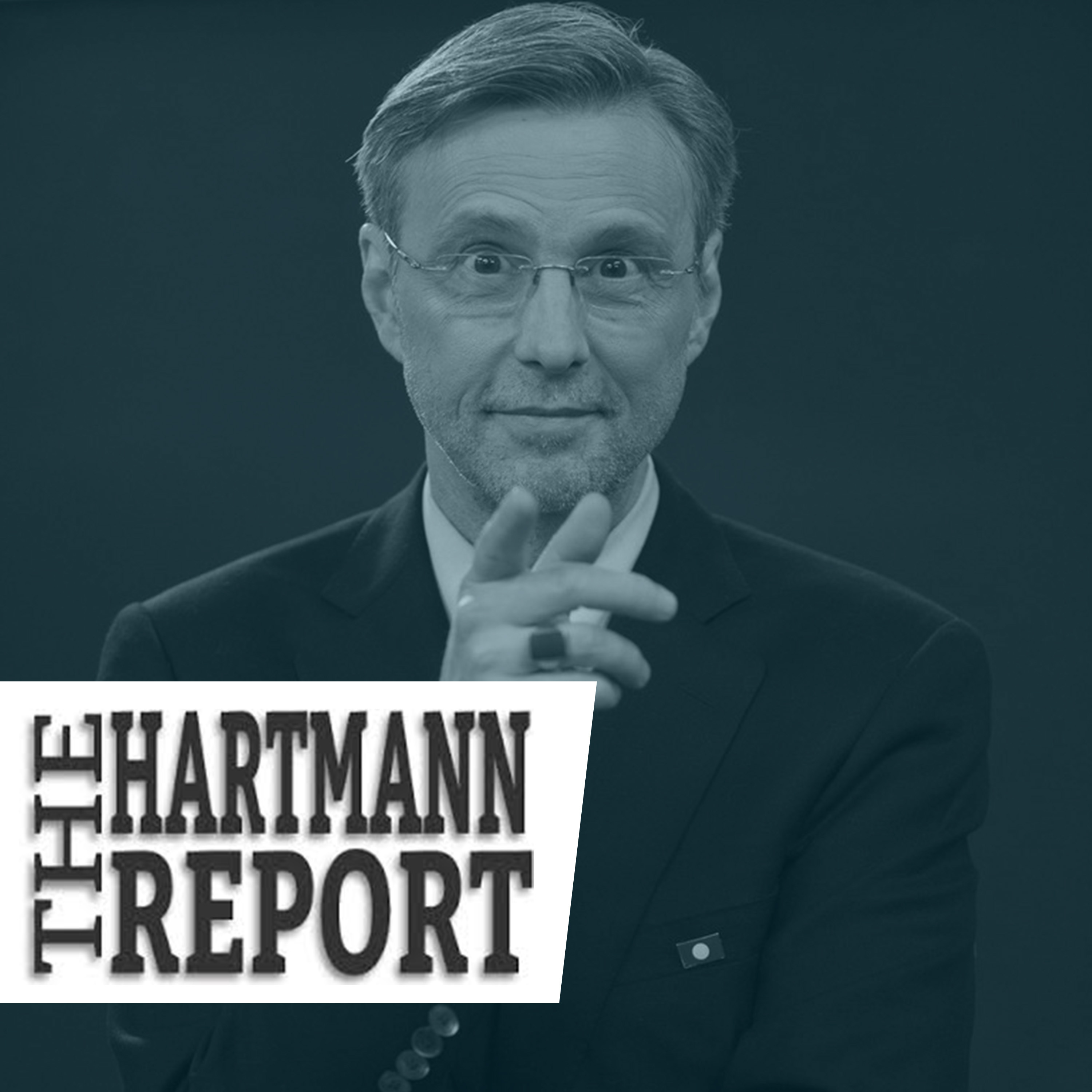
The Hartmann Report
Thom Hartmann
The Glenn Show
Glenn Loury
#RolandMartinUnfiltered
Roland S. Martin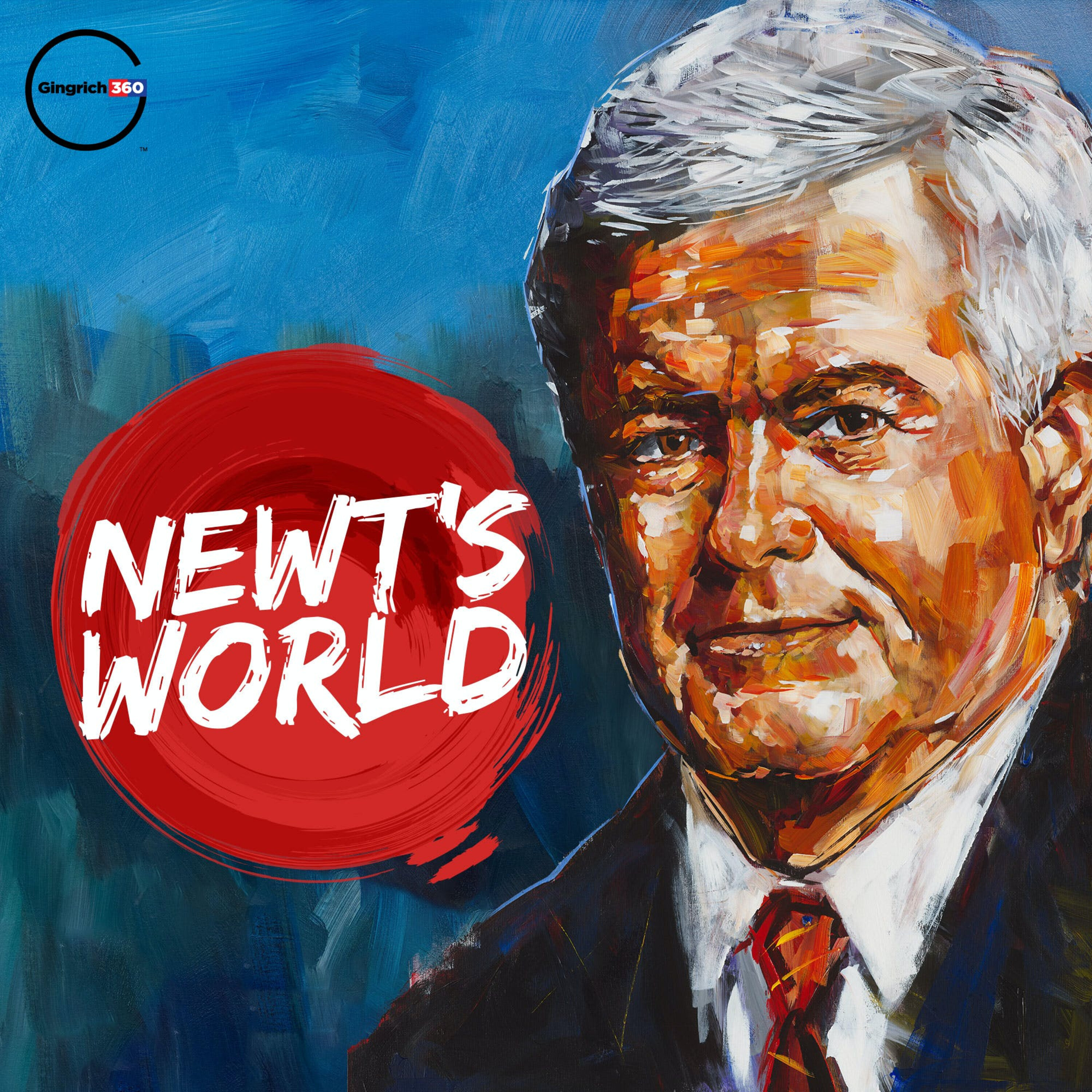
Newt's World
Gingrich 360
Pod Save America
Crooked Media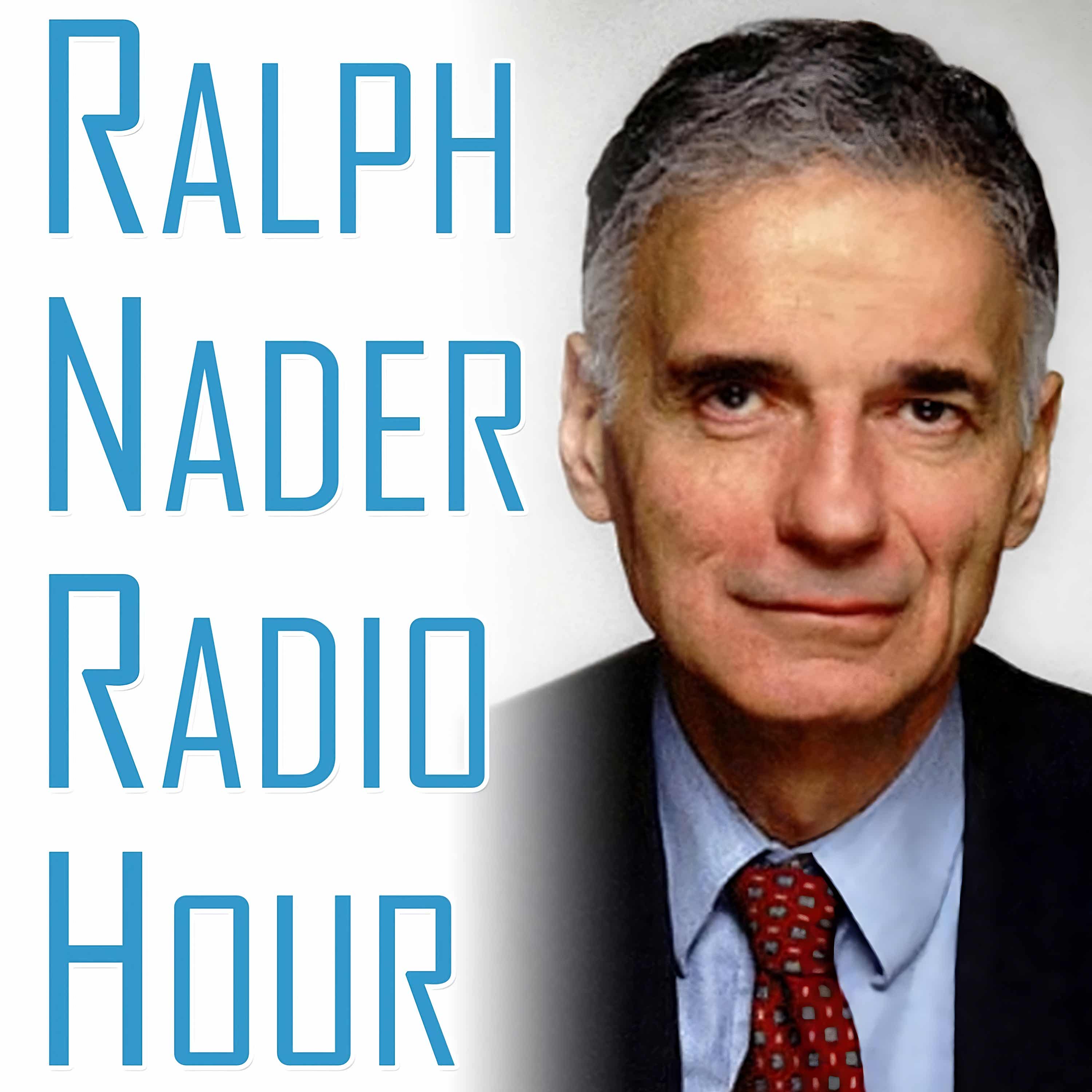
Ralph Nader Radio Hour
Ralph Nader
Bannon`s War Room
WarRoom.org
Bannon’s War Room
dan fleuette
The Young Turks
TYT Network
The Beat with Ari Melber
Ari Melber, MS NOW
The Damage Report with John Iadarola
TYT Network
The Majority Report with Sam Seder
Sam Seder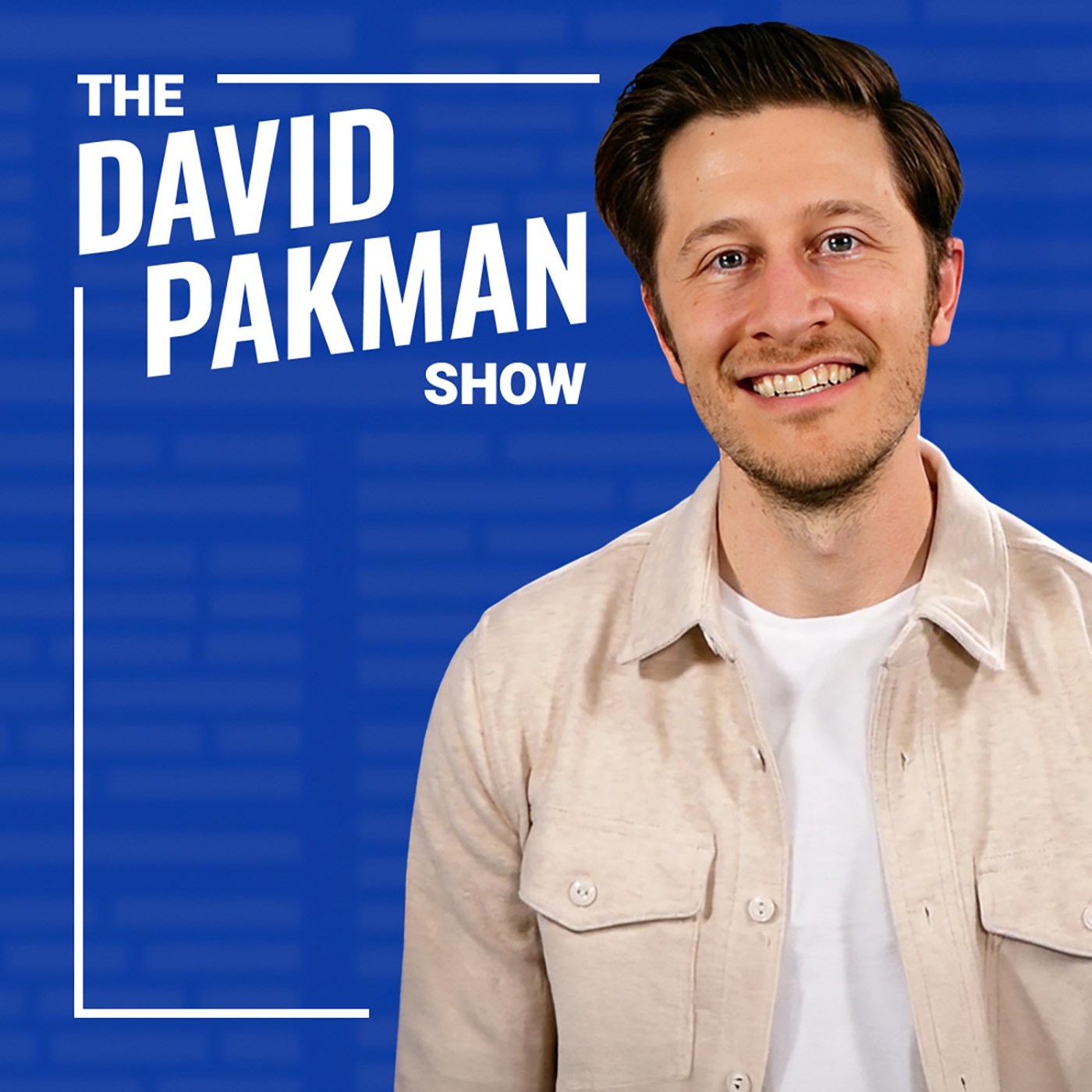
The David Pakman Show
David PakmanGet A Grip with Kendall Reusing
Kendall Reusing
Ultimately with R.C. Sproul
Ligonier Ministries
Grace to You: Radio Podcast
John MacArthur
The Briefing with Albert Mohler
R. Albert Mohler, Jr.
StarTalk Radio
Neil deGrasse Tyson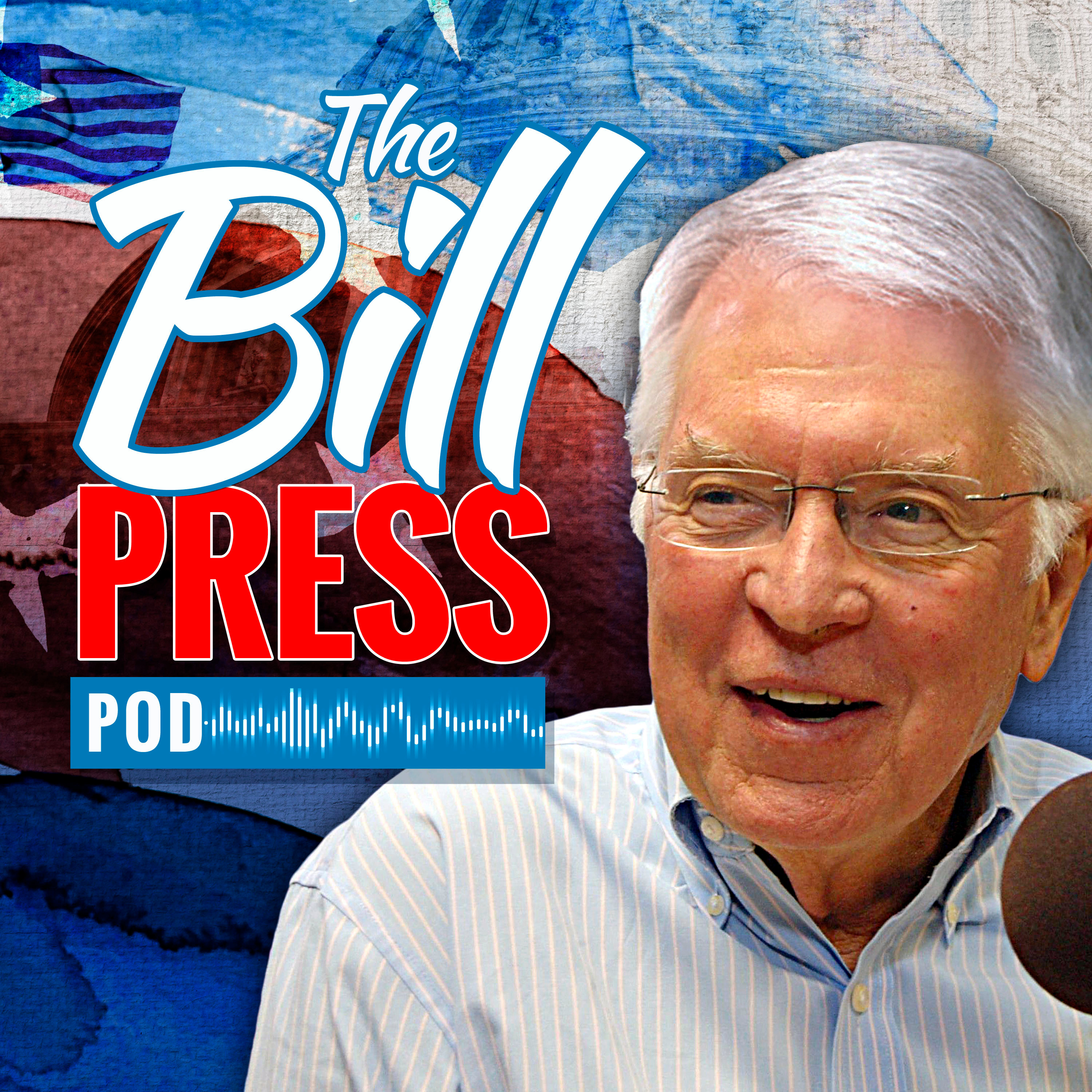
The Bill Press Pod
BP Pods
Ask Pastor John
Desiring God
The Weekly Show with Jon Stewart
Comedy Central
Ask Ligonier
Ligonier Ministries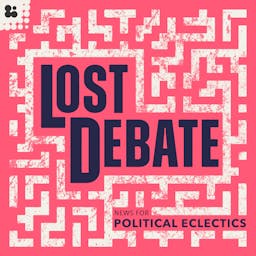
Lost Debate
The Branch
Coffee-Time-Again
Dale Hutchinson
5 Minutes in Church History with Stephen Nichols
Ligonier Ministries
The Ezra Klein Show
New York Times Opinion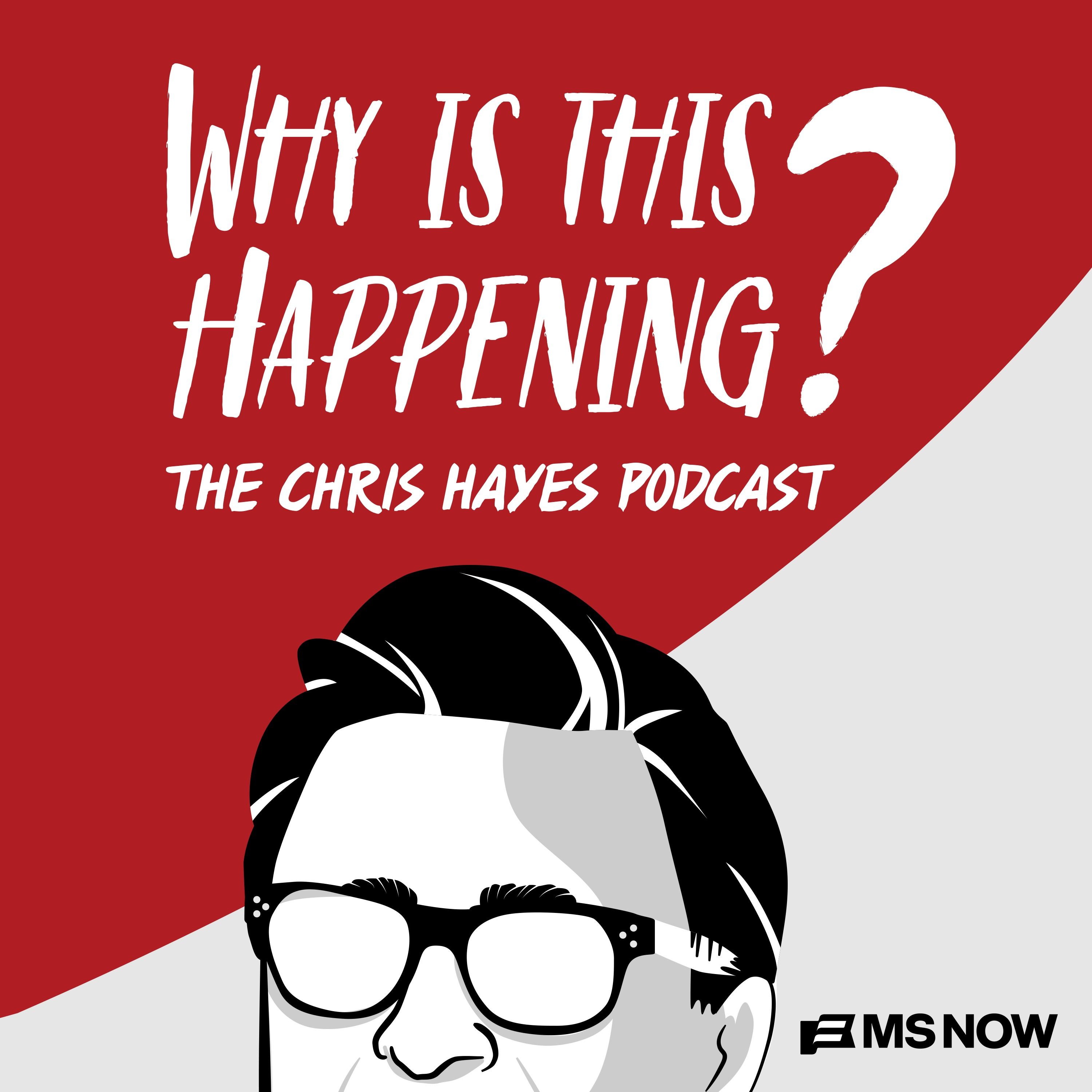
Why Is This Happening? The Chris Hayes Podcast
MS NOW, Chris Hayes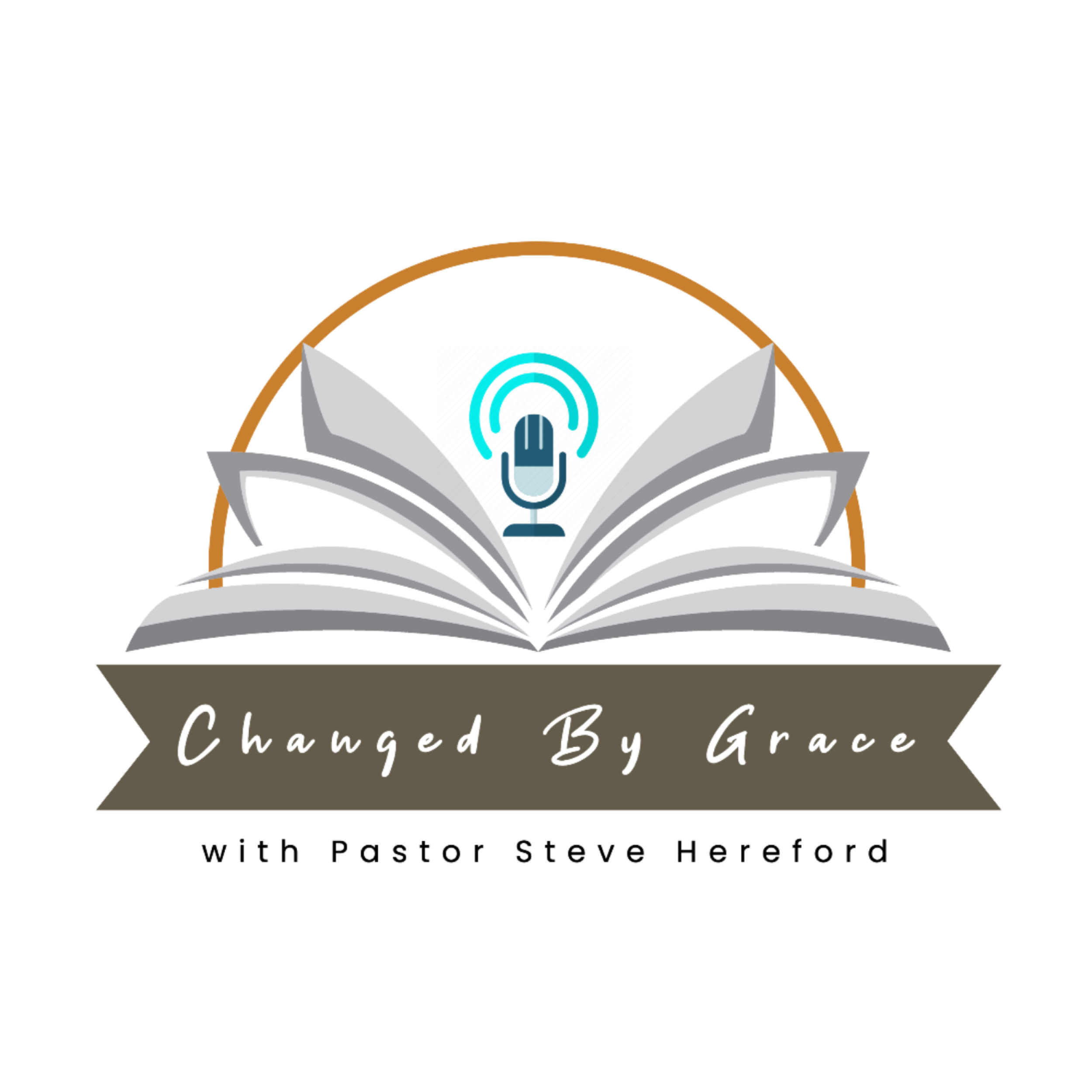
Changed By Grace
PodPoint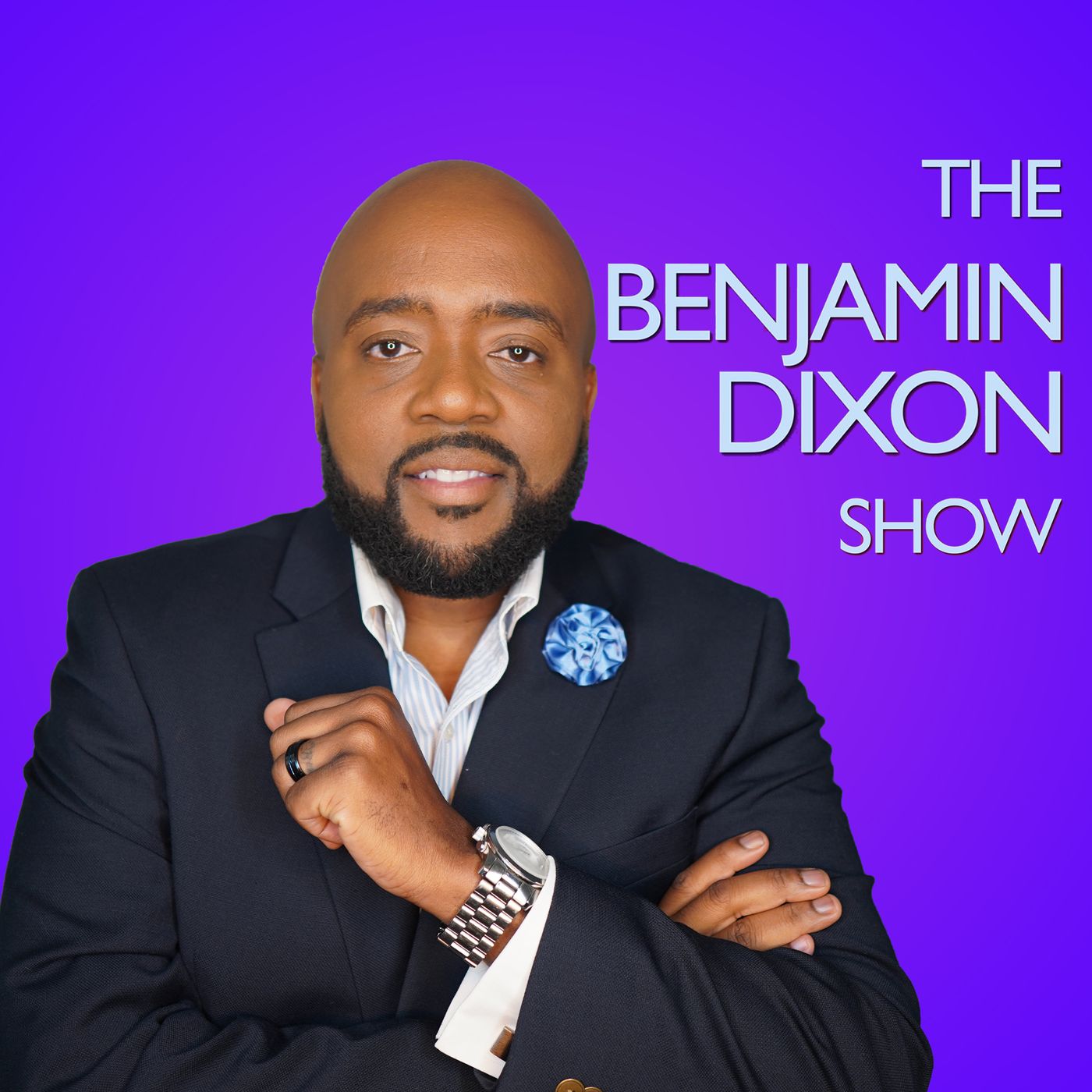
The Benjamin Dixon Show
The Benjamin Dixon Show
Thinking in Public with Albert Mohler
R. Albert Mohler, Jr.
Who Killed JFK?
iHeartPodcastsThe MacArthur Center Podcast
The Master's Seminary
Jean Jacques Machado : No Gi Required
Jay Zeballos
Trauma Bonding
Jamie Kilstein
This Day in History
The HISTORY Channel
The Ben Shapiro Show
The Daily Wire
The Sean Hannity Show
Sean Hannity
Breaking Points with Krystal and Saagar
iHeartPodcasts
The Kyle Kulinski Show
Kyle Kulinski